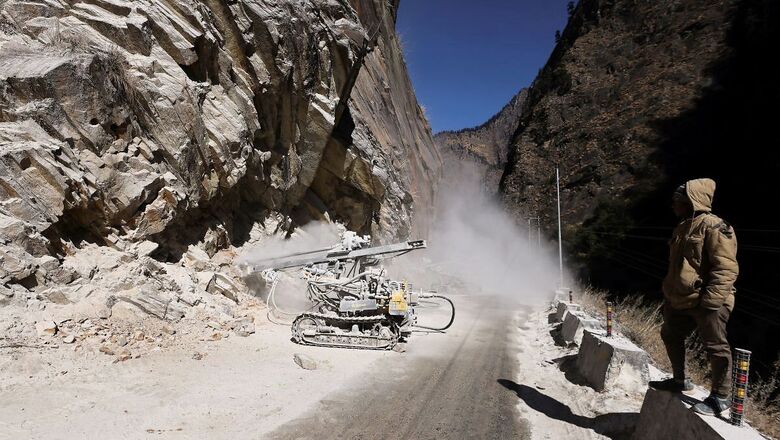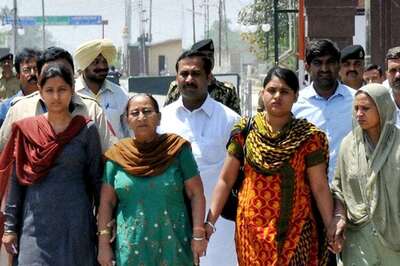
views
The pace of construction of national highways in India has improved with 8,064 km finished in the current financial year as on February 28, 2023. This makes it 24.14 km per day on an average, with a marginal improvement from the numbers from 2021-22 for the same period.
According to ministry data accessed by News18 up to the end of February, last year, 8,045 km of national highways were constructed between April and February, making it 24 km per day on average.
The per day average also improved in the last few months, as per the data shows. During the April-October period in this financial year, the per day average was 18.97 km, which improved to 19.5 km per day by the end of December and further to 22.23 km/day by the end of January.
In the 2020-21 financial year, which saw the Covid-induced lockdown, the ministry constructed 13,327 km of national highways, a record to date. The average per day construction touched 36.5 km in 2020-21. In 2019-20, the ministry constructed 10,237 km of national highways and, in 2021-22, 10,457 km were constructed.
“Road construction for national highways is badly impacted during the monsoon. With the long monsoon, the pace of construction was impacted for longer. In the later months, with fewer chances of rain, the pace picks up and, hence, we can see this increase,” a ministry official told News18.
Additional cost not incurred in all delayed projects: Ministry
The ministry told Rajya Sabha on Wednesday that almost 40 percent of its projects were running behind schedule due to a number of reasons. In its written reply in the upper house of parliament, it also said additional cost was not incurred in all delayed projects.
“As of February 2023, there are 1,801 ongoing projects, of which 725 projects are running behind schedule across India due to protracted monsoon in many states, above average rainfall in some states, Covid-19 pandemic, increase in price of raw materials (mainly steel),” the ministry said, adding many other reasons.
The other factors impacting project progress are: bottlenecks related to land acquisition, statutory clearances or permissions, utility shifting, encroachment removal, law and order, non-availability of soil/aggregate, financial crunch of concessionaire or contractor, poor performance of the contractor and concessionaire.
The ministry further said in build-operate-transfer (BOT) projects, there was no cost escalation due to delay as it was absorbed by the concessionaire. For other projects, if delay was attributable to the project authority, price escalation was paid as per contract conditions. This may or may not result in additional cost depending upon the final value of price escalation determined on actual completion of project and final settlement of bills, it said.
“However, if delay is attributable to the contractor, damages are imposed and price escalation is not paid and there is no additional cost due to delay,” the ministry said.
Read all the Latest India News here




















Comments
0 comment